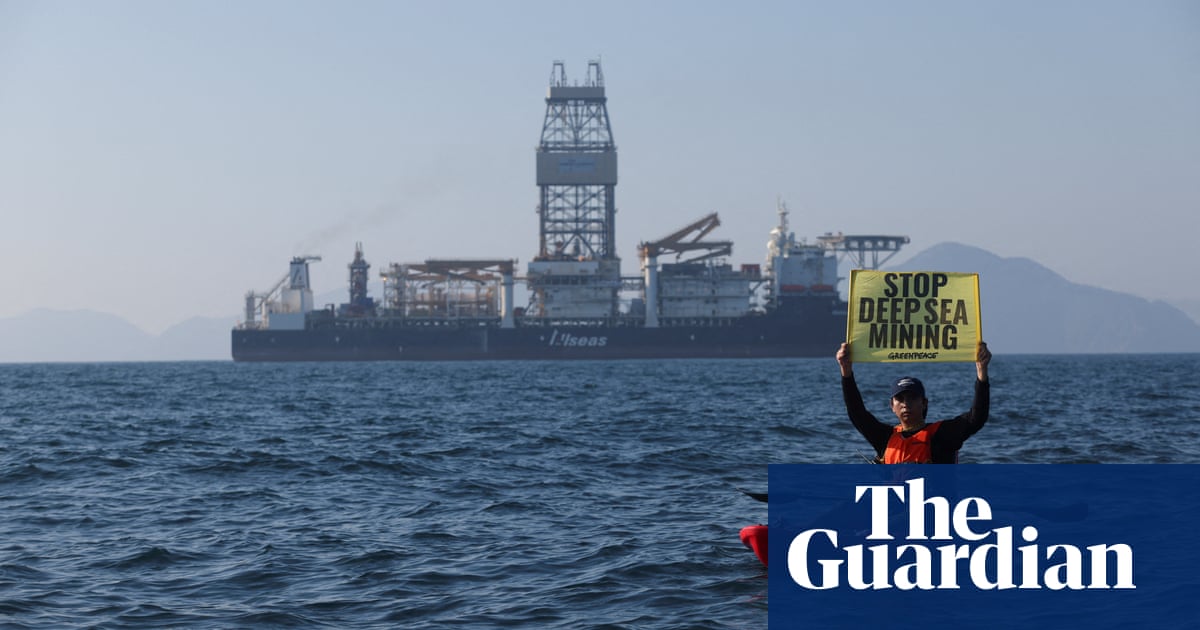Environmental groups complete an executive order signed by Donald Trump to accelerate the deep mining of minerals, saying that it can harm irreparable marine ecosystems and ignore an ongoing process to adopt international bases for this practice.
Trump Thursday to request The National Oceanic and Atmospheric Administration has directed rapid permits for companies to extract the ocean floor in American waters and the United States.
This step comes at a time when China controls many important minerals such as nickel, cobalt and manganese used to manufacture high -tech, including military uses. Trump said his order “creates the United States as a global leader in exploration and mineral development at the sea floor inside and outside the national judicial state.”
This also comes after the Canada -based minerals company said that it will request approval through a subsidiary of the United States for Mining in International Water.
The company issued a statement on its website on Friday, saying that it plans to apply for permits this year to activate nodules that contain valuable minerals “to enhance critical metal supply chains.”
“As is always the case, we are still committed to representation in the interest of sponsoring countries, partners, investors and the planet,” said Gerard Baron, the company’s president and CEO.
But environmental protection advocates are concerned that it can harm fish fisheries and affect the ability of the oceans to absorb and store carbon dioxide, which is the main engine of global warming caused by charcoal burning, gas and other fossil fuels.
More than 30 countries, in addition to fish fisheries, have called on environmentalists, environmental scientists and some car and technology companies, to stop the seabed mining.
“Scientists agree that mining in the depths of the seas is a very dangerous endeavor for our surroundings and we all depend on it,” said Jeff Wattars, Vice President for Foreign Affairs in the ocean. “The damage caused by mining in the depths of the seas is not limited to the ocean bottom: it will affect the entire waterpiece, from top to bottom, everything and everything depends on it.”
Such fears prompted most of the countries in the 1990s to join the United Nations International Sea Service Authority to rule the sea floor mining in international waters. But the United States has not signed this effort, and has not yet adopted rules.
Watters warned that ignoring these efforts “opens a door for other countries to do the same” before adopting guarantees. Denkan Curie, the legal advisor to the Deep coalition at sea, warned Denkan Kuri, the legal advisor to the Coalition for the Preservation of the Seas in the depths of the seas.
Aschon Stewart Carter, CEO of TDI Global TDI, said that the world should also ask whether it can not withstand any depths of the depths of the seas that can help develop low -carbon technologies to combat climate change and whether effects can be managed.
“We are facing difficult options and the possibility of uncomfortable arrests if we want to confront and find solutions to serious climate change,” he said.
But Katie Matthews, the chief scientist in the Da`wah Group, Oshina, said that Trump’s order to accelerate the process now “is a clear condition to put the greed of mining companies on proper instinct … Any attempt to accelerate the depths of the seas without appropriate guarantees that will only accelerate the destruction of our oceans.”
